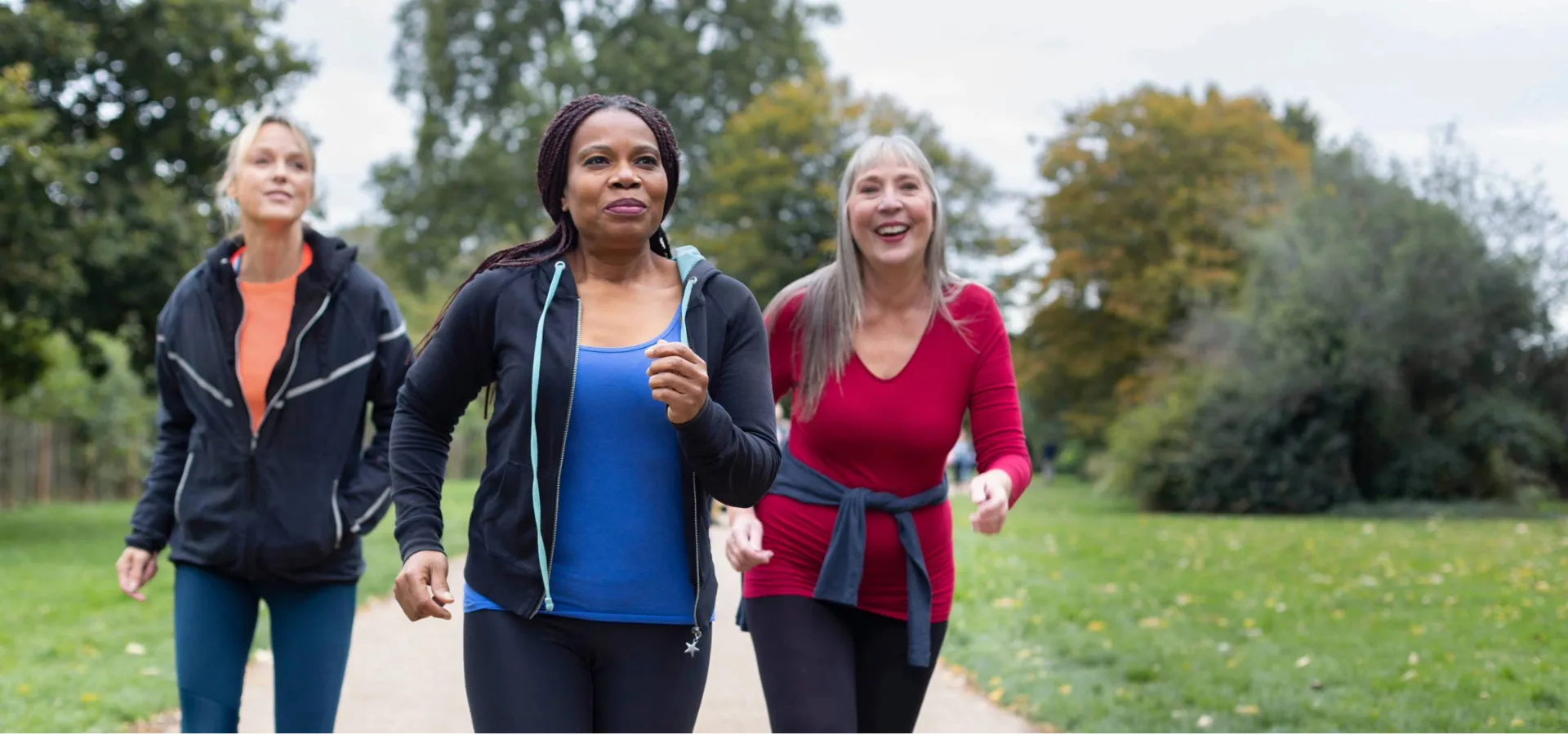Healthy Habits Working Women Need To Adopt As They Reach 35

At 35, you’re probably busy—perhaps with a stressful career, family life, or other goals. It’s tempting to let your health take a backseat, but now is the time to adopt habits that will keep you healthy, energetic, and strong for decades to come. Your body is evolving, with changes such as a more sluggish metabolism or beginning bone density loss, and the decisions you make today will make a significant difference in the future. Below, we’ll take you through the most important healthy habits you should follow, described in an accessible format that you can apply to your life in a practical manner, including embracing a life of running to improve your health. Additionally, we’ve provided answers to frequently asked questions to further assist you in getting started.
Prioritize Preventive Health Checkups
Among the wisest things you can do at 35 is keep your health on track with regular checkups. It’s easier to treat problems earlier, while they’re more manageable. Here are the essential screenings to look into, according to expert advice:
Key Screenings for Women at 35
- Blood pressure: High blood pressure can creep up and boost heart disease risk.
- Cholesterol levels: Allows you to evaluate your heart health.
- Blood sugar: Tests for diabetes or prediabetes.
- Thyroid function: Trouble with the thyroid can influence energy and weight.
- Breast health exams: Routine self-exams and clinical exams are important. Mammograms may begin if you have a family history of breast cancer.
- Pap smears: Performed every 3-5 years to test for cervical cancer.
- Vaccinations: Keep up with shots such as flu, HPV, or others your healthcare provider recommends.
It’s also crucial that you learn your family medical history. If there is heart disease, diabetes, or cancer in your family, you may require additional tests or earlier checkups. Make an appointment for an annual physical to go over these with your physician. “Building and maintaining healthy habits now, like adopting a running lifestyle, can have a lasting impact on your physical, mental, and emotional health”.
Recommended Screenings Table
|
Screening Type |
Frequency | Purpose |
| Blood Pressure | Annually |
Identifies hypertension |
|
Cholesterol |
Every 4-6 years | Measures risk of heart disease |
| Blood Sugar | Every 3 years |
Screens for diabetes |
|
Pap Smear |
Every 3-5 years | Identifies cervical cancer |
| Breast Exam | Monthly (self), Annually (clinical) |
Early breast problem detection |
|
Mammogram |
As recommended |
Screens for breast cancer |
Fuel Your Body with Good Nutrition

Also Read: Trying to Conceive? These Fertility Supplements May Be the Answer
Eating well is the foundation of staying healthy, especially if you’re embracing a running lifestyle to stay active. At 35, your body needs nutrient-rich foods to keep up with your busy life and support long-term health. Here’s what to focus on:
- Whole grains: Think brown rice, quinoa, or whole-grain bread for fiber and energy, which are essential for sustaining a running lifestyle.
- Lean proteins: Chicken, fish, beans, tofu, or nuts assist in tissue building and repair, particularly useful for muscle recovery after running.
- Healthy fats: Avocados, olive oil, and fatty fish such as salmon are good for your brain and heart, complementing the benefits of running for women’s health.
- Fruits and vegetables: Try for a mix of colors to obtain a variety of vitamins and minerals to energize your runs.
- Calcium and vitamin D: Bone health depends on them, as bone density begins to decrease around age 35. Foods rich in them include dairy, plant milk fortified with vitamins, leafy greens, and sunlight for vitamin D, which is important for runners to keep bones strong.
Nutrition Tips for Busy Women
Attempt to restrict processed foods, sweet treats, and too much salt, which can cause weight gain, high blood pressure, or other challenges that may discourage your running habit. If you’re always on the go, plan meals ahead and keep healthy snacks like fruit, nuts, or yogurt handy to support your active routine. A balanced diet is key to preventing health issues and maximizing the benefits of running for women’s health.
Stay Active with Regular Exercise

Also Read: Understanding Menstrual Disorders: Causes, Symptoms, And Treatments
Exercise makes your body strong, improves your mood, and reduces the risk of getting chronic diseases such as heart disease and diabetes. Doctors advise a minimum of 150 minutes of moderate aerobic exercise per week—approximately 30 minutes daily, 5 days a week. This may be:
- Brisk walking
- Cycling
- Swimming
- Dancing
- Running
Why Running Is a Great Lifestyle Choice for Women
Why running is such a good lifestyle option for women: Running is a wonderful option for professional women since it’s convenient, low on equipment needs, and comes with many health benefits. It enhances heart health, makes bones strong, and enhances mental acuity, making it perfect for hectic lifestyles. Adding a running lifestyle to your regimen can assist you in reaching the 150-minute weekly requirement with or without outdoor or treadmill activities.
Strength Training and Running
You also need to do strength training, such as weight lifting or bodyweight exercises (squats, push-ups, or yoga), twice a week. Strength training maintains muscle mass and bone density, which is particularly valuable as you get older and adds to the health benefits of running for women’s health, including increased bone strength and endurance. If you hate exercise, choose something enjoyable, such as a dance class or hiking with friends. For runners, being part of a running group may make the running life more fun. Even tiny modifications, such as taking the stairs or walking for lunch breaks, count.
Safety Tips for Women Running Alone
Safety for women running alone: If you decide to run as part of your running habit, safety is paramount. Run in well-lit, crowded places, particularly during early morning or evening. Carry a phone, inform someone of your route, and think about wearing reflective clothing or using a tracking app. Don’t wear headphones to remain alert for potential danger, and rely on your instincts if you feel something is amiss.
Get Plenty of Sleep and Reduce Stress
Sleep and stress management are vital to your health, particularly with a hectic work schedule and active running life. Try for 7-8 hours of quality sleep every night. An effective bedtime routine—such as reading, a warm bath, or no screens before bed—can get you to bed earlier. Bad sleep can impact your mood, concentration, and weight, which can influence the performance of your runs, so treat it as a priority.
Stress-Reducing Techniques
Stress can also pay a price, increasing your risk for heart problems, anxiety, or depression. Try these stress-reducing habits:
- Meditation or deep breathing: Even 5 minutes a day can keep you level-headed.
- Yoga: Combines exercise and relaxation, complementing a running regimen.
- Hobbies: Find time for things you enjoy, such as painting or gardening.
Running can also be an effective stress-reliever, because the advantages of running for women’s health include the release of endorphins that enhance one’s mood. If stress becomes overwhelming, seek consultation with a counselor or therapist. Many employers have mental health assistance available through employee assistance programs.
Practice Good Mental Hygiene

Also Read: Understanding PCOS: Symptoms, Causes, Treatment & How Women Can Take Control
Your mental health is as vital as your physical health. As a working professional, you may have stress from close deadlines, family obligations, or personal aspirations. Feeling stressed out is to be expected at times, but do not overlook symptoms of depression or anxiety. Running as a lifestyle can work, too, since running increases endorphins and gives a feeling of achievement. Frequent visits with a mental health specialist can do the trick, and self-help activities such as writing in a journal, hanging out with friends, or running can brighten your mood. If you’re finding things tough, don’t be afraid to ask for assistance—it’s a sign of strength, not weakness.
Extra Tips for Everyday Wellness
The following are a few more habits to make you feel your best:
- Hydrate: Drink water all day to maintain energy and skin well-being, crucial for the running lifestyle to avoid dehydration during runs.
- Limit caffeine and alcohol: Too much can disrupt sleep or affect your health, which can impact your running performance. Stick to moderate amounts.
- Reduce screen time: Especially before bed, to improve sleep and reduce eye strain.
Planning for Pregnancy (If Applicable)
If you’re thinking about starting or growing your family, know that fertility starts to decline after 35, and pregnancy risks like miscarriage or complications may increase. Discuss with your doctor early so you can be sure you’re healthy and to address any things you should do, such as prenatal vitamins or habits. A running lifestyle can complement overall health, but discuss safe exercise with your physician during pregnancy planning. Early prenatal care can really help.
How Running Supports Women Through Menopause

Also Read: Top Yoga Trends for Better Health in 2025
When you’re getting into your 40s, you might begin to notice early symptoms of perimenopause, such as irregular menstruation or mood swings. Why running aids women during menopause: Running can alleviate symptoms by balancing hormones, enhancing mood, and keeping bones dense, an important factor since estrogen levels fall. The advantages of running for women’s health are to decrease hot flashes, enhance sleep, and give confidence a boost during this phase. Incorporate running into your routine 3-4 times a week, but start slowly if you’re new to it, and always follow safety tips for women running alone to stay secure.
FAQs: Your Questions Answered
1. What are the key health tests for women in their 30s?
The key tests include blood pressure, cholesterol, blood sugar, thyroid function, breast examination, Pap test, and vaccinations. Your healthcare provider can customize a regimen according to your health and family background.
2. How do I have a healthy diet if I have long working hours?
Pre-plan meals, eat whole foods, and stock up on healthy snacks such as fruit or nuts. Aim for balanced meals of protein, healthy fats, and complex carbohydrates to keep you satisfied and full of energy, particularly if you are living a running lifestyle.
3. What exercise is most suitable for women aged 35 and above?
Combine cardio exercises (such as running, walking, or cycling) with strength exercises (such as weights or yoga). Aim at 150 minutes of moderate exercise every week and strength exercises two times a week. Why running is an excellent lifestyle for women: It’s convenient, improves heart health, and is good for the mind.
4. How do I cope with stress well?
Try meditation, deep breathing, or yoga. A running lifestyle is also beneficial because running relieves tension through endorphin release. If stress is overwhelming, seek professional help from a therapist.
5. Is it too old to begin healthy habits at 35?
Absolutely not! Beginning healthy habits, such as a running habit, at any age can have a positive effect on your health. Small, consistent efforts—such as consuming more vegetables or running a few times a week—can have lasting, significant effects.









